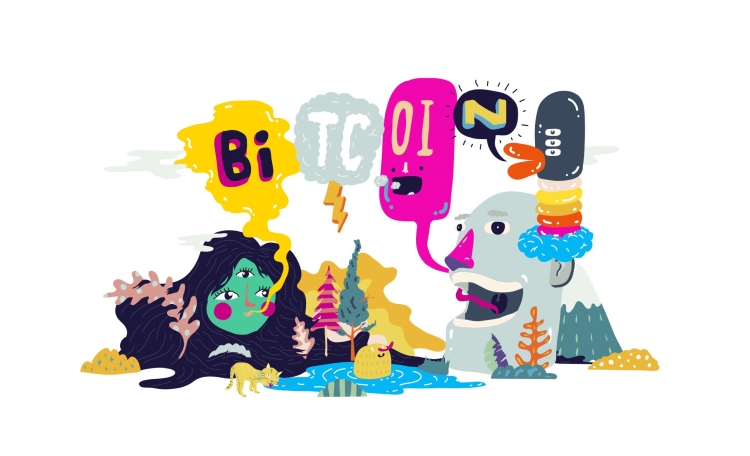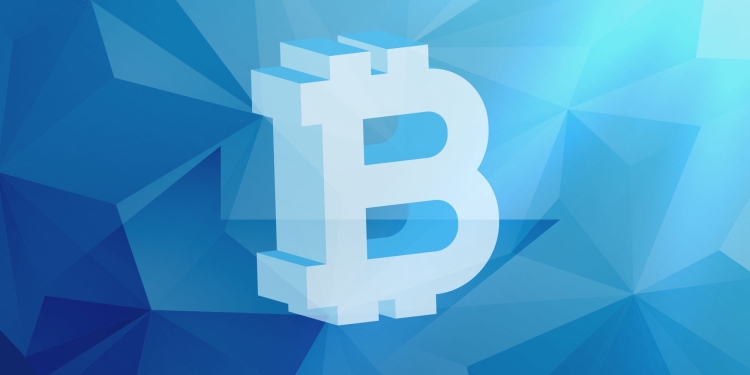Women of Bitcoin: Volume 2
Last week, we kicked off our “Women of BTC” blog series, where we’ll hear from members of Square’s Cash App team about the incredible work…
In the second edition of our “Women of BTC” series, we talked to members of the Finance and Legal departments: Emily Pirnack and Crissy Solh.
Emily is part of Square’s Finance & Analytics group’s Treasury team. She joined two years ago from Hitachi where she worked on FX trading. When the Cash App team first started building Bitcoin functionality, they needed someone to lead the trading initiative. Emily raised her hand and the rest is history.
Crissy is three years in at Square and serves as the Cash App team’s product counsel: essentially, she is the team’s primary legal advisor for all things Cash.
Tell me about the work you did and are doing on Bitcoin.
EP: Day one was pretty painful — some processes were extremely manual.
We worked quickly to automate as much as we could. Engineers built automatic portals for tracking all of our trading and providing recommendations for hedging trades. We are now (thankfully) at a point where much of what we do is automated.
The process isn’t always turnkey and often involves a number of steps and complications to iron out, but overall, the systems and the processes have improved faster than anything I have ever seen. Whenever you’re dealing with large amounts of money, you need to make the system efficient in the most secure way possible.
CS: It was (and is) very extensive! There were many different issues that we had to scope and find solutions for. One was liaising with various governmental agencies that might have oversight over Bitcoin and understanding what body of law to apply to this completely new asset class. For example, is it a security from the SEC’s perspective? Is it a commodity from the CFTC’s perspective? How does the IRS view Bitcoin and crypto? These are the kinds of tough questions we needed to ask and understand.
What was your favorite part of the work?
EP: The team I have the opportunity to work with daily is smart, creative, and always ready to tackle any issue that comes up. Not only are they open to different perspectives and opinions, but everyone is super nimble and able to iterate quickly on any new ideas. This keeps the day-to-day work interesting and is a complete different experience than anything I’ve worked on before.
Also, Cash App and the crypto industry are both moving and changing so quickly. I enjoy addressing those changes and playing with adaptation at scale.
CS: I enjoyed the fact that there was no clear answer to many of the challenges we needed to solve. It took a lot of creative lawyering to understand where there might be landmines, and where to take principled risks. We spent a lot of time making the strongest arguments we could about how we felt this concept should be presented to the world.
I felt empowered to find answers and navigate this completely new territory. In the legal department, the various sub-teams come to legal conclusions in consensus, so everything was worked to a point of reaching agreement with the rest of the team, having buy-in, making sure everyone believed in the legal conclusions we were reaching.
What got you interested in Bitcoin/crypto?
EP: While travelling internationally, I’m constantly being charged exorbitant fees to withdraw funds from the ATM, which is ridiculous in my opinion. I’m always thinking of ways that we can improve our financial system and crypto is generally looking to help solve for that.
What’s the most exciting thing about working on this new aspect of the financial system?
EP: Square is creating best practices as we introduce crypto into our business model and others are looking at us to pave the way. This is challenging, but also so exciting. We’re creatively building in-house solutions to many problems in this developing space, including cold storage, trading operations, and security because there aren’t better solutions out there. It’s rare to be able to make such a large impact externally and I’m lucky to be part of the initiative at Square.
This isn’t something you get to do much within the financial system where much of what you use is textbook and long standing. This is new, we’re building it, and we’re contributing to crypto’s foundation which is incredibly refreshing.
What are the most interesting things you’re seeing happening across crypto or tech more broadly?
EP: Solutions to fix the slow blockchain problem. Currently, it can get very congested and slow, and this is one of the issues that needs to be fixed for Bitcoin to become a mainstream payment mechanism.
CS: More broadly, it seems like cryptocurrency could have really interesting solutions for international payments. But the crypto/blockchain community might not be there yet.
What makes you passionate about the work you do?
EP: The fact that people are actually using Cash App to manage their money. People are receiving payroll into their Cash App balance, then they’re able to do everything from buying Bitcoin to withdrawing cash from the ATM. And, it’s simple and easy to use. Simplifying financial services and improving the process for the underserved is so important and definitely an area of passion for me.
CS: The majority of the work that I am asked to look into lives in legal gray areas. This work requires creative lawyering, looking around corners, and finding an analogy somewhere else to pull from. There’s a lot of work done to ensure that you really understand what the risks and rewards are. I think it’s pretty unique in the legal world to be able to do that.
What advice would you give to other women interested in entering the crypto space?
EP: Crypto is in dire need of broader perspectives. We need diversity to actually help change the systems that we’ve already created. My advice would be to create a niche and personal brand and then let that define how you enter the space. Be unique and stand out from those that are already in the space. Don’t focus on being the only woman in the room, focus on what only you can contribute.
CS: Learn the technology. Learn the use cases. Have some skin in the game if you’re actually interested in the subject. Finally, try to innovate. If you can understand the concepts, you can innovate.
What’s the best advice you’ve gotten?
EP: Figure out what you want to be known for and strategically go after projects that get you there. Don’t say yes to everything and spread yourself too thin, be deliberate about what you say “yes” to. Know your vision, where you want to be in 5 years, and choose projects and mentors that will get you there.
CS: The best legal conclusions come from friction among lawyers and between lawyers and their product teams — with healthy friction you will get the right result.




